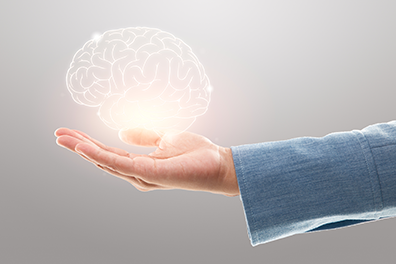The Most Common Neurocognitive Disorders

Patients with neurocognitive disorders have experienced a decline in mental function due to medical diseases. Here are a few of the most common neurocognitive disorders:
Alzheimer’s Disease
Alzheimer’s is a brain disease characterized by memory loss and processing issues. Alzheimer’s is common in older people; increasing age is the greatest risk factor of developing Alzheimer’s. Alzheimer’s is a progressive disease and can develop into Dementia, a more serious form of memory loss. The symptoms of this disease can affect one’s ability to perform daily tasks. Unfortunately, Alzheimer’s Disease does not currently have a cure.
Those with Alzheimer’s Disease may also experience:
- Changes in mood and behavior
- Growing confusion
- Disorientation
- Difficulty speaking or walking
Parkinson’s Disease
Parkinson’s is a brain disease that is characterized by nerve cell damage that leads to tremors, shaking, difficulty walking, and loss of balance or coordination. This nerve damage occurs as the nerve cells in the basal ganglia begin dying off. These nerve cells produce dopamine; the lack of dopamine causes movement problems. Much like Alzheimer’s, Parkinson’s is a progressive disease and affects mainly older people. There is currently no cure for Parkinson’s, but the disease can be treated with medication that increases dopamine levels.
Those with Parkinson’s Disease may also experience:
- Depression
- Fatigue or sleep problems
- Skin problems
- Difficulty swallowing or chewing
- Urinary issues or constipation
Huntington’s Disease
Much like Parkinson’s Disease, Huntington’s Disease is the progressive death of nerve cells in the brain. This disease is also characterized by similar involuntary movements. However, the movements are slightly different. Parkinson’s Disease causes tremor-like movements, while Huntington’s Disease causes jerky movements. While Parkinson’s develops around the age of 60, Huntington’s can develop as early as 30.
Those with Huntington’s Disease may also experience:
- Slurred speech
- Changes in mood and behavior
- Abnormal posture
- Difficulty swallowing or chewing
Are you concerned for the health of your loved one? Neurocognitive Disorder Testing may provide the answers you’re seeking.
Dr. Geo-Anna Hirshenbaum is a licensed clinical psychologist whose focus is on conducting psychological evaluations for all age groups. She has been administering assessments for over ten years and has worked with children, adolescents, adults, and the geriatric population.
Interested in learning more about Neurocognitive Disorder Testing? Contact us today!
Don’t forget to follow us on Facebook!